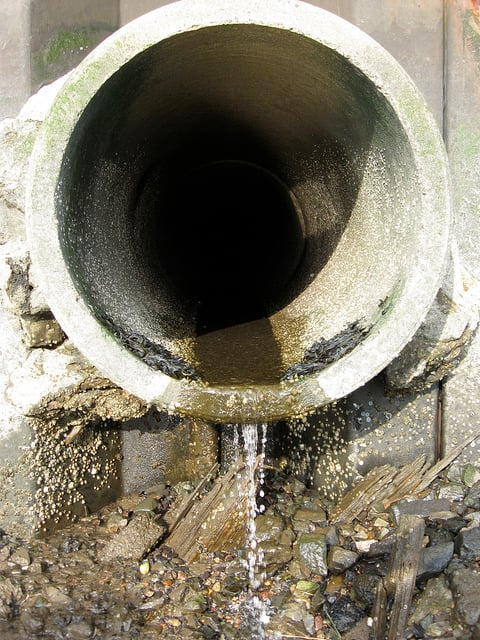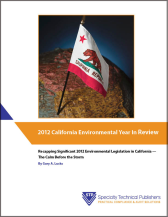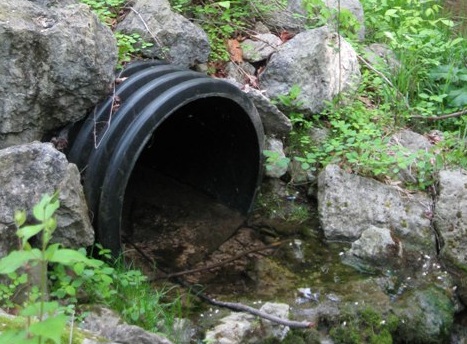It’s common knowledge now that lead is a systemic poison. Overexposure to it can damage our blood-forming, nervous, urinary and reproductive systems. In the past, lead was commonly added to industrial paints because of its characteristic corrosion resistance and color enhancement. Lead Poisoning Prevention Week takes place from October 20–26. Sponsored by the US Environmental Protection Agency (EPA), this year’s event focuses on protecting children from exposure to lead. EPA and partner agencies such as HUD are helping raise awareness among parents of ways to combat lead poisoning, from monitoring children’s consumption of certain types of imported candy to screening those most liable to be exposed to lead in the home.
Audit, Compliance and Risk Blog
Tags: Business & Legal, California Legislation, Environmental risks, Environmental, EPA
Do you know what's in the chemical products you buy and use, and whether they're "safe?" Effective October 1, 2013, California regulations provide criteria and procedures for state-level identification and listing of likely-hazardous chemicals of concern. Manufacturers and importers will be required to evaluate chemicals of concern in consumer products, their potential alternatives, and how best to limit exposure or reduce hazards. Assemblers and retailers will have related responsibilities. Although these requirements apply directly only within California, any reviews and reformulations are likely to affect global production and distribution decisions.
Tags: Health & Safety, California Legislation, Environmental, EHS, EPA, Hazcom
Cal/OSHA Revises Its Hazard Communication Standard
Posted by STP Editorial Team on Mon, Jul 15, 2013
Cal/OSHA’s Hazard Communication Standard (HCS) is designed to ensure that employers evaluate and classify the hazards of workplace chemicals, and that both employers and employees receive relevant information about those hazards. HCS requires all employers with hazardous chemicals in the workplace to develop, implement, and maintain a workplace hazard communication program to inform employees about the hazardous chemicals to which they may be exposed. HCS also requires manufacturers and importers of hazardous chemicals to classify the hazards of the chemicals that they produce or import, and distributors to pass this information to end-users.
Tags: Business & Legal, Health & Safety, OSHA, California Legislation, Hazcom
Environmental Compliance: Changes to California Training Requirements
Posted by Viola Funk on Wed, Jul 03, 2013
California Revises Wastewater Treatment Plant Operator Certification Rules
The latest State Water Resources Control Board (SWRCB) regulatory tweaks broaden coverage but also give wastewater treatment plant owners some welcome wiggle room. Effective April 1, 2013, the SWRCB has revised its regulations regarding wastewater treatment plant classification, operator certification, and contractor registration. The rules have been expanded to cover privately owned wastewater treatment plants. However, they also establish a provisional operator certification. This means owners of Class I wastewater treatment plants who are finding it hard to recruit certified operators may employ provisional operators while conducting their search. In addition, the definition of wastewater treatment plant has been revised to clearly state that water recycling treatment plants are included within the definition. Numerous other key changes affecting California CCR compliance have been made to these regulations.
Tags: Corporate Governance, Employer Best Practices, Health & Safety, California Legislation, Training, Environmental risks, Environmental
Environmental Compliance: Walmart Pays $110 Million in Fines
Posted by Jon Elliott on Wed, Jun 05, 2013
On May 28 Walmart bundled guilty pleas in a number of pending federal cases alleging environmental compliance violations at some of the company’s 4600+ stores in the U.S. These arose because Walmart had not implemented a corporate hazardous waste management program until January 2006, leaving locations to manage—or mismanage—such wastes.
Tags: Corporate Governance, Business & Legal, California Legislation, Environmental risks, Environmental, EPA, Hazcom
Are you an employer concerned with California Code of Federal Regulation (CFR) compliance? Some recent developments at the state level may affect your operations. To learn whether you need to take action, read on!
Tags: Health & Safety, OSHA, California Legislation, Greenhouse Gas, ghg
Protecting Stratospheric Ozone A Quarter Century After Montreal
Posted by Jon Elliott on Tue, Apr 23, 2013
The Montreal Protocol on Substances that Deplete the Ozone Layer provides the international framework for protecting the earth’s stratospheric ozone layer, by identifying and minimizing emissions of ozone depleting substances (ODSs). The original Montreal Protocol was initialed in September 1987. The U.S. was an original signatory, ratified in 1988, and became subject to agreed-upon provisions on January 1, 1989. Title VI of the 1990 Clean Air Act Amendments incorporates these international commitments into U.S. law, and assigns the Environmental Protection Agency (EPA) to fine-tune and enforce domestic requirements.
Tags: Business & Legal, California Legislation, Environmental risks, Environmental, EPA, Greenhouse Gas, climate change
Various changes were made to environmental legislation during 2012, both in the US and internationally. Here follows a summary of some of the headlines.
Tags: International, California Legislation, Environmental, EPA, Greenhouse Gas, ghg, Stormwater
Environmental Compliance: Roundup of California 2012 Legislation
Posted by Lorraine O'Donovan on Thu, Mar 21, 2013
In 2012 California made small amendments to its existing environmental laws while passing new laws to implement climate change and energy-related initiatives. Most of these changes became effective on January 1, 2013, and focused, among other things, on the following priorities:
Understanding Insurance Law: 3 Important Cases in 2012 - Part 1
Posted by Barry Zalma on Mon, Jan 07, 2013
As part of the year in review series, insurance expert Barry Zalma identifies his three most significant insurance law cases of 2012. Here is his first choice:
Tags: Business & Legal, California Legislation, Environmental, Insurance, Insurance Claims










